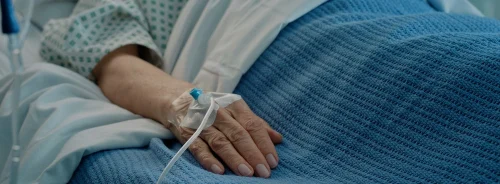ICU Management & Practice, ICU Volume 5 - Issue 1 - Spring 2005
Author
N. Zamperetti,MD, PhD
Department of Anaesthesia
and Intensive Care Medicine
San Bortolo Hospital, Vicenza, Italy
Correspondance
Managing the request of an ICU patient to forgo intensive supports can be extremely difficult. Keepingdifferent decision levels distinct, evaluating the patient’s competence and building effective relationshipsamong the patient, the patient’s relatives and the healthcare team are essential steps.
Introduction
Making end-of-life decisions is usually very difficult (Ardagh 2000; Cook et al. 1995; Prendergast et al. 1998; Ravenscroft 2000; Sprung et al. 1996; Vincent 1999) as it involves different decision levels (clinical, ethical, legal and relational). These levels must be kept distinct, avoiding any misguiding confusion. A good practice is to clarify the clinical situation as much as possible, to decide which is the best possible approach, and finally to see how it can be best implemented from a legal point of view. Various aspects need to be taken into consideration.
• The clinical data must be established to a reasonable level of medical certainty. A decision based on incorrect clinical data cannot be morally or legally correct.
• Relationships are extremely important in intensive care. Somehow, especially in end-of-life situations, the
way things are done is at least as important as what is specifically carried out. Good patient-relative-healthcare worker (HCW) relationships are essential to clarify patients’ wishes and attitudes, and to help relatives to understand the situation and cope with it.
• Bioethics recognize some universal fundamentals, i.e. the value of moral principles, yet the interpretation of principles in each situation usually depends on local factors. Autonomy, for instance, can be intended as a personal
(patient-oriented) definition of beneficence, so that it is somehow possible to limit it when it’s contrary to some socially defined patient’s interest (e.g. survival). Elsewhere, autonomy can mean self-creation, personal fulfilment, independent from beneficence; so the patient’s wishes could be meaningful even if apparently irrational. Dignity can also have different meanings, ranging from full autonomy to duty of care to biological life. So, bioethics can be defined as a sort of culturallymediated, community-based morality.
• Bioethics show what is good, whereas the law indicates what is legally permitted. Bioethics and law do not always concur. The hard part is keeping these two aspects distinct, without avoiding the “good” solution or sacrificing it either due to the absence of clear legal rules or for fear of legal consequences (Lemaire 2004; Meisel et al. 2000).
• Good terminology is mandatory. The term “vital support” can be misleading in terminal conditions, when actually the support is merely “agony prolonging”. The forgoing of futile treatment should never depend on the patient’s refusal, but only on good medical practice. In this paper, only refusal of effectively useful intensive treatment will be considered.
The Patient’s Refusal of Intensive Support
Honouring ICU patients’ requests to forgo effective intensive supports rarely happens without conflict (Franklin & Rosenbloom 2000; Franklin & Weil 1991; Grande et al. 1998; Lemaire 2004; Luce 2002; Veatch 2002). If a patient's request places his or her life directly at risk, HCW feel ill at ease, and sometimes try to overrule the directive, especially if the patient loses consciousness. Although understandable, this is illogical. If there were good reasons to accept a patient’s decision when he or she was competent, this should also be honoured later, in the absence of new significant facts. Furthermore, when a patient loses consciousness, it may be too late for effective intervention, which is not only contrary to the principle of autonomy, but also more likely to be futile.
On the other hand, in rare and selected cases, it may be possible to overrule the patient’s request and treat him or her when the proposed interventions are more likely to be effective, even if the patient does not accept them. Cases of patients treated in spite of their refusal of care are reported, and if the outcome is acceptable, such patients are usually grateful for having been cured (Grande et al. 1998; Vollmann et al. 2004). So, the real question is: can we accept letting people die just because they have refused treatment, if we can reasonably save them?
The Competence in ICU Patients
ICUs are quite hostile environments and critically ill patients are not always in the best position to make sound decisions. We need to know what the patient actually wants. For a patient with inadequate competence and in the absence of reliable advance directives (AD), we need to guess. Families and HCW need to agree on a position that is both reasonable and likely to respect the patient's wishes. Nevertheless, it’s still a matter of guessing rather than knowing. In a situation with knowledge of the patient’s wishes, effective therapy and reasonably acceptable outcome, it is probably better to err on the safest side: i.e. by avoiding irreparable tragic consequences. If the therapy works, there is always time and space to forgo vital therapies, patients, above all in emergency situations. Yet, decisions have to be made.if the patient chooses this, when he or she resumes competence. If the therapy does not work, then it can be forgone if it clearly turns out to be futile, and the patients can die in peace and dignity without physical and emotional suffering, albeit after an adequate therapeutic trial.
Therapy and Outcome, Means and Goals
The therapy is just a means; the goal is the outcome. If the informed patient reliably refuses the outcome, there is no reason to administer any therapy save for the compassionate ones. If the patient refuses the proposed therapy, but accepts the possible outcome, then our duty is to make effective therapy as minimally displeasing as possible. Credibility and patient's trust can be used to overcome a patient's fears. Also mild sedation can be used to help anxious patients. A vegetative state due to fear of needles (Franklin & Weil 1991) is a very poor outcome, in which the reverence of the patient’s autonomy risks leading to a culture of deep loneliness; loneliness of patients left alone to die because of their fears, and loneliness of the HCW prevented from helping their patients.
The Meaning of Medical Care
The curing/caring activity has per se a content of morality. It is much more than a mere technical act. Tending a suffering person with the best possible efforts to help him or her to recover is a moral action. Certainly, its moral content is not absolute. It must be compared to the willingness of that person to be helped, to his or her views of life, morals and religious beliefs. Nevertheless, accepting every patient’s decision, even when illogical and most probably contrary to his or her best interests and real wishes, may not always result in the best choice. A clinically sound and compassionately administered medical action should be considered a good and adequate approach until proven otherwise. The best proof is the patient’s informed refusal of therapy. This is usually difficult to achieve in a clear way in ICU
A Possible Practical Approach
• In practice, the consequence of refusal of an effective therapy should be weighed against the patient’s acceptance of the predictable outcome. If the patient refuses the outcome, and such a decision appears in line with his or her views of life, morals and religious beliefs (so that the patient’s decision can be considered as reliable), then this position should be respected until the end. This holds even if the probably acceptable outcome is only obtainable through means that the patient refuses, due to religious or well-grounded personal beliefs.
• On the contrary, if the consequence of refusal is clearly in contrast with the patient’s views of life, morals and religious beliefs (as witnessed by the patient’s relatives and friends), so that such a decision can be considered as unreliable, every effort should be undertaken to encourage acceptance of the therapy. Adequate sedation - if clinically indicated - can be a final, but acceptable resource in the patient’s best interest.
• Deciding what to do is important, but how things are done can be even more relevant. Caring for the patient is crucial, whatever our decision. In particular, there are no clinical or moral reasons to deny sufficient analgesia and sedation to ICU patients, unless otherwise requested by the patients themselves.
• Also the relatives deserve attention. After an adequate involvement in the decision process, the patient’s loved ones must be cared for during the terminal phase. Our work is not to return a dead body to the relatives, but to help them to accompany and participate with their loved one in the dying process. The needs of relatives must be identified and dealt with (Truog et al. 2001). This cannot be covered in a guideline, but can only develop from the careful presence of the health care team, in a "caring for the family while caring for the patient" approach.
Conclusion
Excellence in intensive care can be measured by many indicators, including the quality of ICU death. A dignified ICU death can only happen through respect of patient’s autonomy, adequate administration of comfort measures, involvement of relatives and fulfilment of their needs during the dying process. Verifying the patient's actual wishes, in order to effectively honour them, although probably the most difficult step in the whole process, is a fundamental one.





